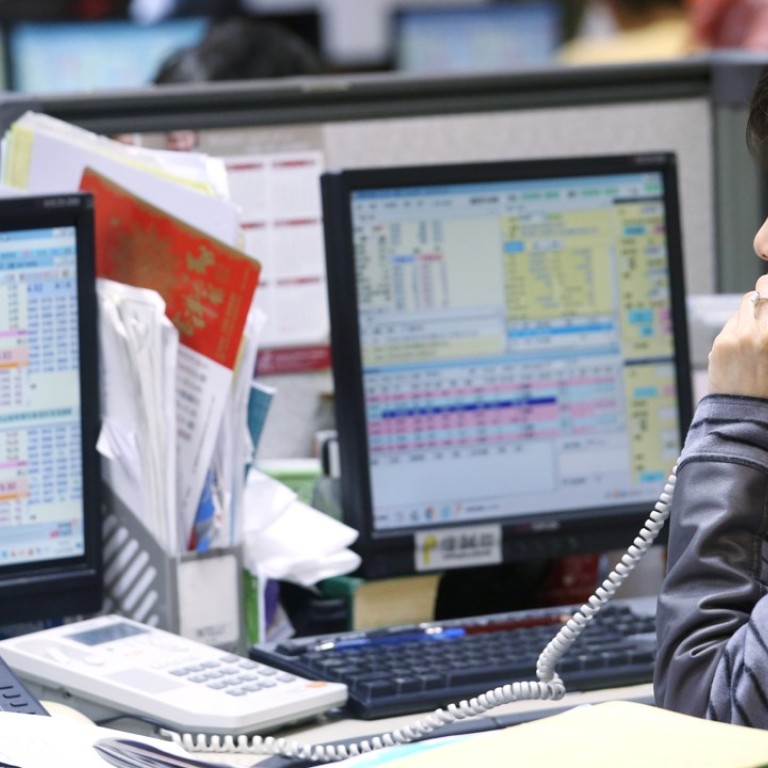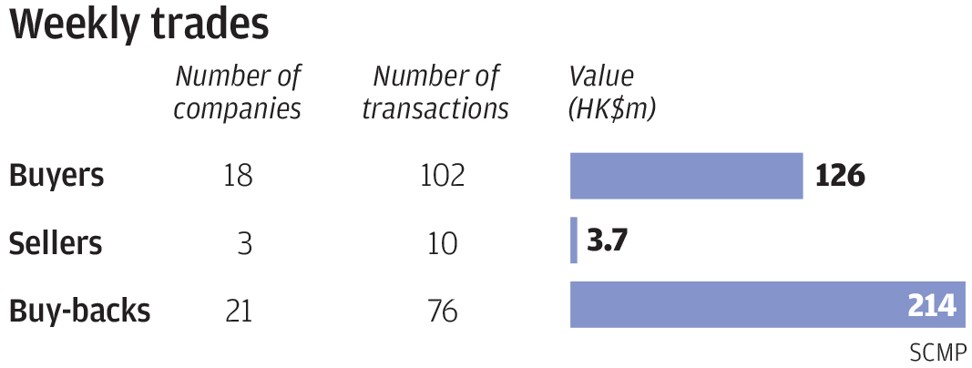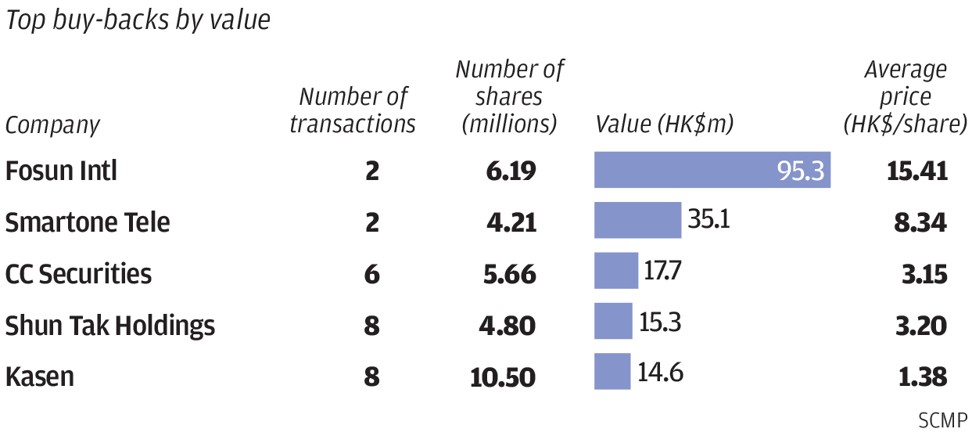
Hong Kong directors buy more of their companies’ shares in Lunar New Year holiday week
Share buy-backs by companies rise for a second week, with Fairwood Holdings and Tianda Pharmaceuticals among firms repurchasing stock
Buying of shares in their own companies by Hong Kong directors surged during the holiday-shortened week of February 12 to 15, after falling for three straight weeks, while selling plunged, based on filings to the Hong Kong stock exchange.
A total of 18 companies recorded 102 purchases by directors worth HK$126 million (US$16.1 million), versus a paltry three firms with 10 disposals worth HK$3.7 million.
The buy figures were sharply up from the previous week’s five-day totals of 15 companies, 64 purchases and HK$38 million. The sales, on the other hand, were sharply down from the previous week’s five firms, 26 disposals and HK$41 million.
Share buy-backs by companies meanwhile rose for a second straight week, with 21 companies posting 76 repurchases worth HK$214 million, based on filings from February 9 to 15. The figures were up from the previous five-day totals of 13 firms, 60 trades and HK$87 million.
Among director buying and selling, the chief executive of investment and property development firm Winfull Group, Lee Wing-yin, bought 107.5 million shares on February 13 at HK$0.16 each. The trade increased his holdings to 135.68 million shares, or 2.45 per cent of the issued capital. The stock closed at HK$0.17 on Thursday.
It was Lee’s first on-market trade since his appointment in November 2011 and came after a 78 per cent drop in the share price since June 2015, when it stood at HK$0.74, and after the company announced on February 12 a rise in first-half profit to HK$150.17 million.
Meanwhile, executive director of health and beauty products distributor Shunten International, Sidney Lee Chi-hang, bought 1 million shares in the company on February 14 at HK$1.13 each, his first on-market trade since his appointment in January 2016. The buying came after a 41 per cent drop in the share price since October 2017’s HK$1.91. The stock is still up since March 2016’s HK$0.26.
The trade increased Lee’s holdings by 17 per cent to 7 million shares, or 0.33 per cent of the issued capital. In November the company reported a first-half loss of HK$1.18 million, versus a profit of HK$7.43 million for the same period the previous year. The stock closed at HK$1.13 on Thursday.
Among companies buying back their shares in the February 9 to 15 week, fast food restaurant chain Fairwood Holdings repurchased 87,000 shares on February 9 at HK$30.75 each, the first buy-back since December 2016. It came on the back of an 11 per cent drop in the share price since June 2017 from a peak of HK$34.65, but was the highest buy-back price since it started its repurchase programme in 2004.
Previously, it had acquired 240,000 shares in December 2016 at an average of HK$29.81 each and 251,000 shares from January to February 2016 at an average of HK$22.99 each.
It had also acquired 51,000 shares in December 2015 at HK$23.93 each and 393,000 shares from July to September 2015 at an average of HK$21.82 each, while before that it bought 3.9 million shares from May 2010 to October 2014 at HK$7.20 to HK$17.10 each or an average of HK$11.86 each, as well as 3.43 million shares from August 2007 to September 2008 at an average of HK$8.82 each and 886,000 shares from June 2004 to March 2005 at an average of HK$2.17 each.
The stock closed at HK$32.35 on Thursday.
Health care products manufacturer Tianda Pharmaceuticals Ltd repurchased 50,000 shares on February 9 at HK$0.30 each, its first buy-back since 2001. It came after a 41 per cent drop in the share price since October 2016, when it stood at HK$0.51.
The company previously acquired 80,000 shares from February to March 2001 at an average of HK$0.47 each. At its interim results in November 2017, it reported that profit fell by 41 per cent to HK$9.84 million. The stock closed at HK$0.30 on Thursday.





